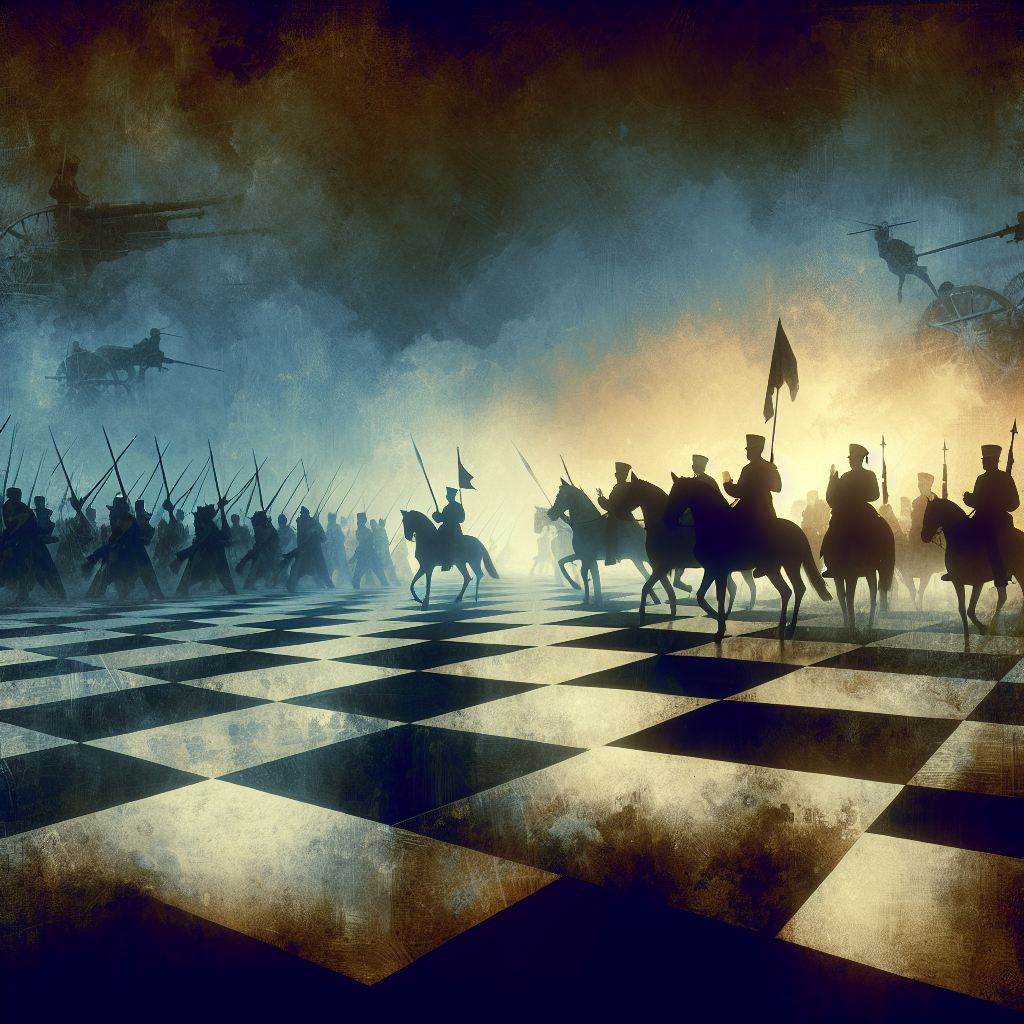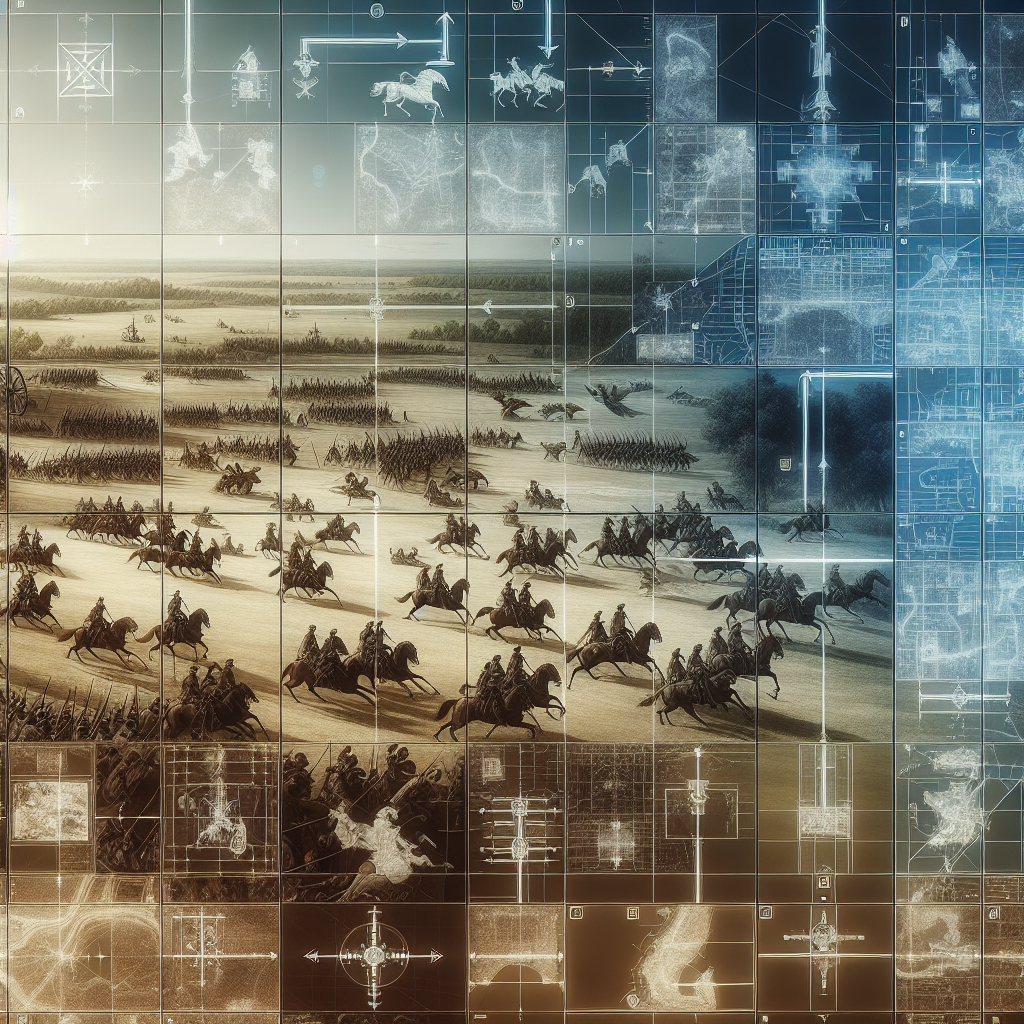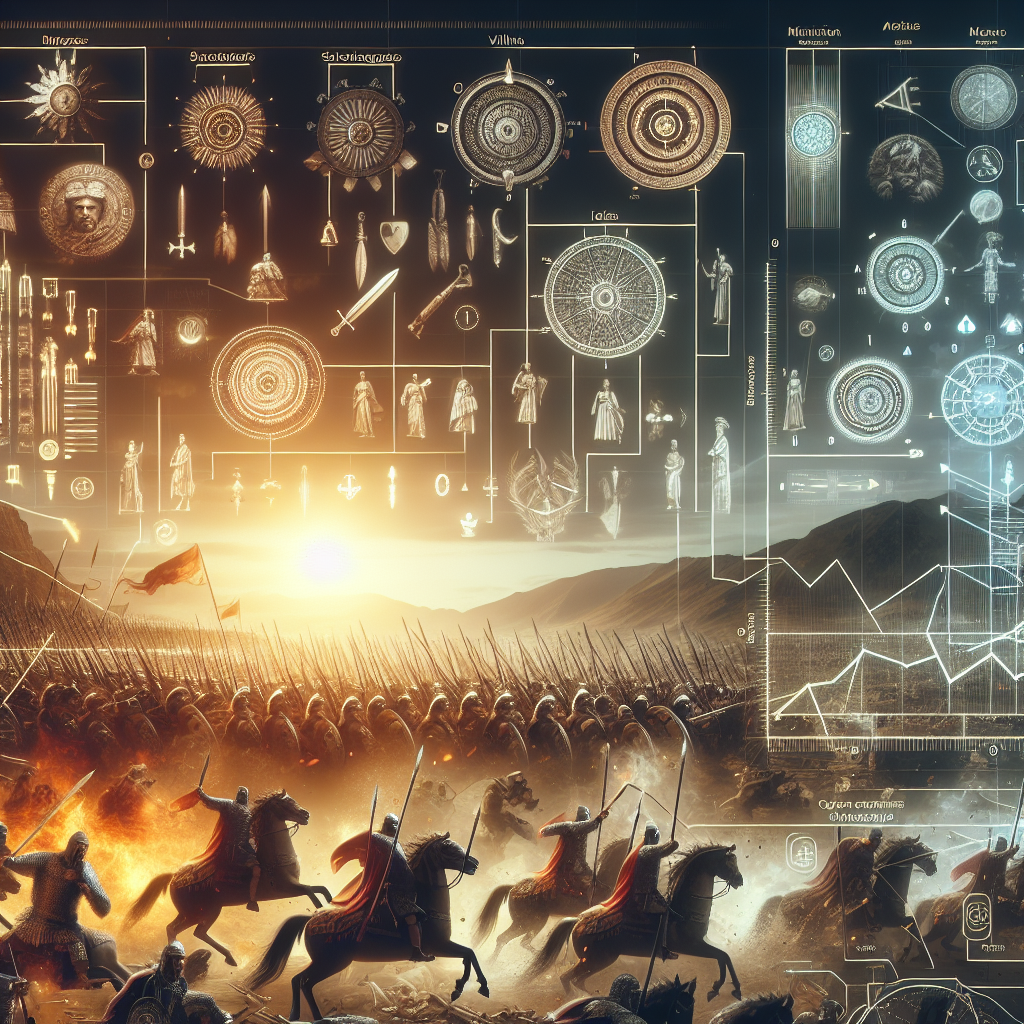How did Legendary Battles Shape History? Uncovering the Impact of Military Strategies, Heroism, and Conflict
- Xfacts

- Sep 10, 2024
- 5 min read
Updated: Sep 15, 2024
Legendary battles have always been pivotal in shaping the course of history, leaving a lasting impact on societies and cultures worldwide. These historic conflicts not only altered the political landscape but also transformed military strategies and tactics. Let's delve into the annals of time and explore the epic battles that have defined civilizations throughout the ages.
Battle of Marathon (490 BCE)

In 490 BCE, the Greek city-state of Athens faced the mighty Persian Empire at the Battle of Marathon, a clash that would go down in history as a triumph of strategy and courage. Against all odds, the Athenians, led by the general Miltiades, employed ingenious tactics that ultimately secured victory. The marathon run to Athens to announce the triumph gave birth to the modern marathon race! This battle marked the first Persian invasion of Greece and set the stage for the Greco-Persian Wars.
Battle of Thermopylae (480 BC)
The Battle of Thermopylae has become widely popular due to the 2006 Hollywood movie 300, which largely fictionalized the historical event.
Instead of just 300 Spartans, the actual battle included around 2,000 soldiers, consisting of Spartans, Helots, Thebans, and Thespians. This combined force defended the narrow coastal pass at Thermopylae against the Persian King Xerxes' armies.
The Spartan forces, though outnumbered, delayed the Persian army, enabling the Greek forces to repel the invaders. Historians view this event as a strategic use of terrain and a display of patriotic defense.
Battle of Gaugamela (331 BC)
In the Battle of Gaugamela in October of 331 BC, the Persians faced yet another devastating defeat.
Alexander the Great's Macedonian Army, having advanced deep into Persian territory, confronted King Darius III's forces for a final showdown. Despite being significantly outnumbered, Alexander's army, known for his superior tactics, achieved a remarkable victory. Following this decisive battle, the Achaemenid Empire crumbled, falling under Greek dominion.
Alexander's empire thrived, leading to the widespread influence of the Classical Greek era across the Mediterranean region, as well as West and Central Asia. This empire, the most dominant of its time, played a crucial role in shaping Western civilization as we recognize it today.
Battle of Hydaspes
Alexander the Great and his army conquered Western Asia, including Egypt, defeating King Darius III and the Persians in battles like Granicus, Issus, and Gaugamela. Despite objections, he turned his focus to India, achieving a significant victory at the Battle of Hydaspes in 326 BCE. This battle, against King Porus, showcased Alexander's peak abilities amidst tough challenges like harsh environments and facing elephants.
As Alexander marched through India, he faced little resistance and managed to secure several allies during his journey. In an effort to prevent a conflict with the Indian king, he dispatched a representative to Porus in search of a peaceful agreement. However, the arrogant king declined to offer tribute,
Porus tried in vain to stall Alexander by dispatching his son with 3,000 cavalry and 120 chariots. This decision turned out to be disastrous for Porus.
King Porus, severely wounded, stayed on his elephant during the battle. Despite his army retreating, he refused to acknowledge defeat. Alexander approached Porus, who requested to be treated as a king. Alexander agreed, pledging allegiance while allowing Porus to remain king.
After reaching the Hydaspes River, Alexander journeyed towards the Indian Ocean, facing challenges. His army overcame the king's resistance, convincing him to return home. Alexander then returned to Babylon where he passed away in 323 BCE. His extensive empire became the battleground for the Successor Wars over the next thirty years.
Battle of Hastings (1066)

Fast forward to 1066, the Battle of Hastings was a pivotal clash between the Normans, led by William the Conqueror, and the Anglo-Saxons under King Harold II of England. This battle forever changed the course of English history, as it established Norman rule over England. The Norman victory at Hastings introduced feudalism to England and reshaped the English language and culture, blending Anglo-Saxon and Norman influences.
Battle of Plassey (1757)
The Battle of Plassey, which took place on 23 June 1757, marked a significant triumph for the British East India Company, led by Robert Clive, against the Nawab of Bengal and his French allies.
In exchange for £1 million from the Jagat Seth family, Clive successfully defeated Siraj-ud-Daulah, with additional financial support to the East India Company from the same family.
The pivotal moment in the battle was the betrayal of Mir Jafar, the Nawab's chief commander, who was also incentivized by the Jagat Seths.
This victory enabled the British East India Company to establish control over Bengal in 1772, leading to further expansion across the Indian subcontinent, including Burma, in the following century.
Siege of Yorktown (1781)
The Siege of Yorktown, a crucial battle during the American Revolutionary War, occurred during the autumn of 1781.
George Washington and France faced off against Lord Cornwallis and Great Britain. Following weeks of intense combat, Cornwallis eventually surrendered, resulting in the Peace of Paris. This treaty signaled the demise of the First British Empire, paving the way for the creation of the United States of America from the Thirteen Colonies.
The triumph of the American Revolution served as a catalyst for the French Revolution in 1789. The course of history in the Western world would have been drastically altered if Britain had emerged victorious at Yorktown.
Battle of Waterloo (1815)
Although the Coalition forces achieved several significant victories during the Napoleonic Wars, but none were as momentous as the Battle of Waterloo.
These wars saw Napoleon and his French Empire facing off against a coalition of European states united in defense of their territories. Lasting twelve years, the conflict effectively concluded with the Battle of Waterloo in what is now Belgium.
The Coalition emerged triumphant, leading to Napoleon's abdication just four days later. With the collapse of the First French Empire, Europe was liberated from Napoleon's rule, ushering in a prolonged period of peace and prosperity known as the Concert of Europe. This established balance of power remained relatively stable until the eruption of World War I a century later.
The Siege of Leningrad

Moving into the modern era, the Siege of Leningrad during World War II stands as a testament to human resilience in the face of unimaginable adversity. Lasting for 872 days, the Nazi blockade of Leningrad resulted in severe deprivation and loss of life, yet the citizens displayed remarkable fortitude and solidarity. The siege left an indelible mark on Russian history, highlighting the strength of the human spirit in the darkest of times.
Conclusion
In conclusion, these legendary battles showcase the intricate interplay between military strategies, the valor of heroes, and the impact of conflict on societies. Each conflict had far-reaching consequences that reverberated through the pages of history, shaping the world we live in today. By studying these epic clashes, we gain a deeper understanding of the complexities of warfare and the enduring legacy of those who fought on the battlefield.
As we reflect on the sacrifices and triumphs of the past, let us remember the lessons learned from these legendary battles and honor the heroes and villains who played their part in shaping the course of history.
March on, brave readers, and explore the battlefield of history where the echoes of legendary battles still resound!
P.S. Remember, history is more than a story; it's a legacy etched in blood, sweat, and sacrifice.




Kommentare